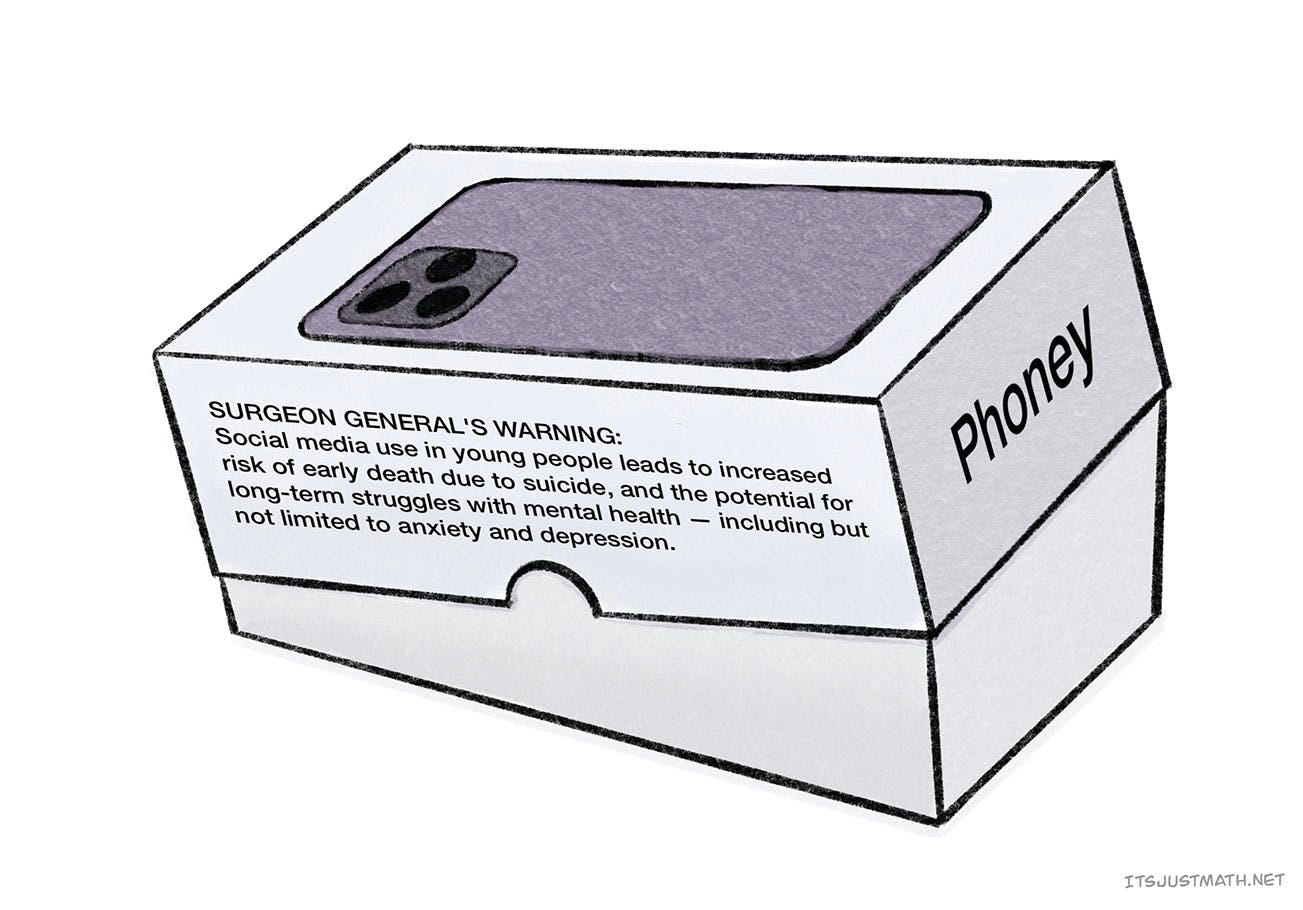Are we in the 1950s of the smartphone era?
Two separate but related posts caught my eye this past week. The first was from David Cain who opines that most phone use is a tragic loss of life. The second was from Jonathan Haidt, where he puts forth evidence that social media is a major cause of the mental illness epidemic in teen girls.
Both talk about the consequences of unchecked smartphone usage, unregulated access to developing minds, and the unrelenting exploitation of their animal instincts. I posit that smartphones might eventually come with their own version of the surgeon general's warning.
Social Media & Mental Health
I’ve written about the beauty and power of the social internet, but I've also seen the other, uglier side of the equation — I ditched most social media a few years back because of its effects on my mental health, and it's manipulation and negative influence on my loved ones.
So there was a particular statistic in Jonathan's post that really stuck with me:
Most teen girls (57%) now say that they experience persistent sadness or hopelessness (up from 36% in 2011), and 30% of teen girls now say that they have seriously considered suicide (up from 19% in 2011)
Most girls [and I would be willing to bet, most teens] are suffering and nearly a third of them have considered suicide.
And before you retort that correlation does not equal causation, I urge you to read the whole post where he disputes that claim (with data).
So what happened in the early 2010s?
Instagram was founded in 2010, and its user base exploded when it was acquired by Facebook in 2012. Around the same time the iPhone 4 was released, becoming the first smartphone with a front-facing (selfie) camera.
It was also around this time that we saw a lot of these companies move from social networking systems (utilities to allow people to communicate with each other) to social media platforms (stages where people perform "in pursuit of public quantified prestige and influence").
It's not necessarily that these companies set out to be "evil" — it's that once they've accepted VC money or gone public, there comes an expectation, dare I say an imperative, to have persistent growth and return on investment. They become part of a broken and extractive system, another player in a self-perpetuating race to the bottom of the brain stem.
It can't be that bad, can it?
Before you write this all off as sensationalism or just "kids these days," allow me to remind you of the outrageous claims we used to make before we "knew better" about the long-term effects of cigarettes on our health.
Cigarette ads went as far as to promise reprieve from asthma, hay fever, digestive issues, even shortness of breath. And respected professionals—doctors—stood behind it. Until they didn't. Until they knew better.
I implore you to look beyond the clever marketing at the insidious warping of the psyches of our future generations. To see that these companies don't can't have our best interests in mind and that continuing to operate as is could have catastrophic repercussions on our society.
Which brings me back to David's piece:
This smoking analogy might seem a bit cheeky. It might be, but I can’t see quite what the difference is ...It’s an irrational, dopaminergic ritual that brings you closer to inevitable sickness, old age, and death.
While I might replace David's use of smartphone with social media, I agree with a lot of his sentiment.
Bonus Material: TikTok just released a hyper-realistic beauty filter that is so dystopian that I'm having trouble finding words for it. But it couldn't be more timely for this post.



